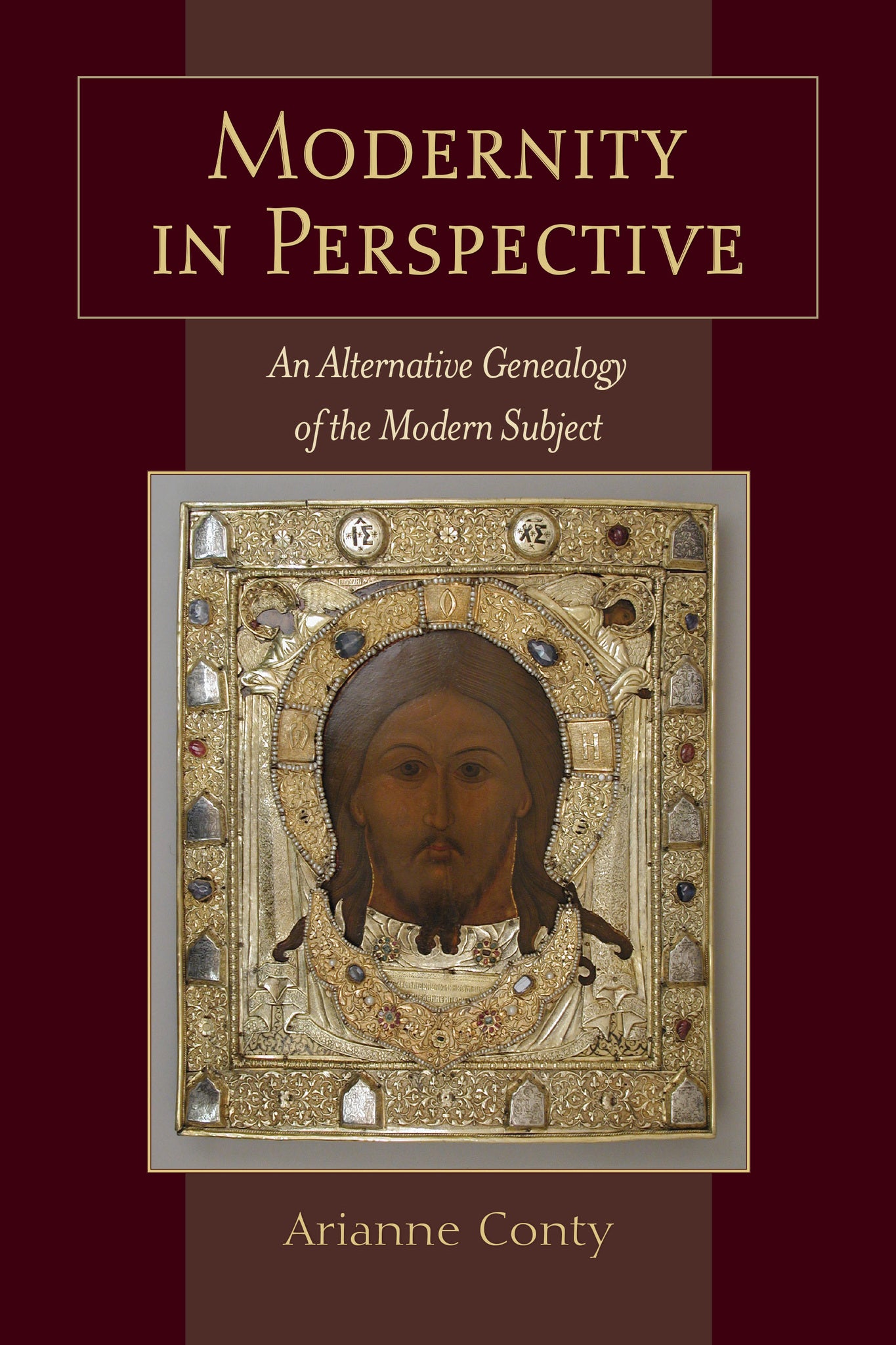We're sorry. An error has occurred
Please cancel or retry.
Modernity in Perspective

Draws on the work of the Renaissance theologian and mystic Nicolas of Cusa to offer an alternative to Cartesian subjectivity.
The normative history of modernity begins with the Renaissance and the invention of linear perspective, which places man, instead of God, at the center of the world. The vanishing point of linear perspective portrays the world from the perspective of the single right eye of a singular subject, and it is this perspective that inspired Descartes's optics and his isolated cogito as the prime example of modern subjectivity. This book returns to the invention of linear perspective to seek another interpretation, offering an alternative to the Cartesian subject. Using the work of Renaissance theologian and mystic Nicolas of Cusa, Arianne Conty traces an alternative genealogy of the modern subject, one that allows the world, and the painting, to return our gaze. In elucidating the critique of the Cartesian subject by twentieth-century philosophers Benjamin, Heidegger, Lacan, Sartre, Merleau-Ponty, and Marion, she asks how modernity could be reconceived if philosophers were to take into account the geometric vision of Nicolas of Cusa and how his alternative vision might enable us to escape narcissism and share our world with the absolute other.


"This is a challenging and important work. Conty seeks to unravel the Cartesian subject by demonstrating a counter-history of the subject rooted in the Renaissance. This is a very fruitful approach and will contribute greatly to our understanding not only of the history of the subject but also how to think about the predicament of the subject in the contemporary world." — Felix Ó Murchadha, author of The Formation of the Modern Self: Reason, Happiness and the Passions from Montaigne to Kant




